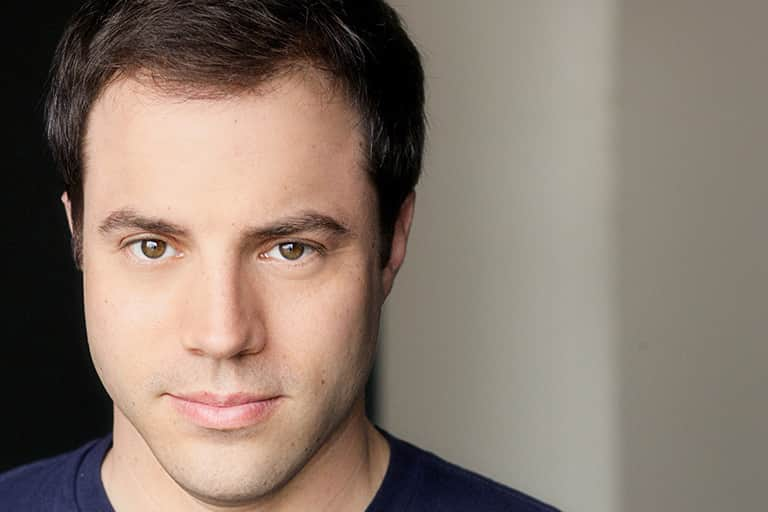There are certain moments in life that lead professionals to where they are today in the workforce. Sometimes, these moments can even have such an impact that may personally affect people on a deep and emotional level. With hard work, dedication, and a competitive drive - Spartans WILL find a way to enrich the lives of others by using their knowledge and capabilities they have developed from their own experiences.
While he completed his undergrad at the University of Michigan, new Professor of Practice and Director of the Communicative Sciences and Disorders (CSD) Master of Arts Program Matt Phillips has done just that.
“I am a person who stutters,” said Phillips. “While I now experience a great deal of
fluency, I have spent a vast majority of my life managing – or hiding – my disfluent speech minute-by-minute, every day. I have a personal understanding of the impact of a communication disorder, but I also have an appreciation for what the field of speech-language pathology can do to change someone’s life. Having received such a gift is what inspired me to pursue this career.”
Where it all began
Phillips attended the University of Michigan from 1987-1991 where he received his bachelor’s degree in psychology. Through his studies, he developed an understanding of not only neurobiology, but also of human behavior – two things that the practice the study of communicative sciences and disorders requires expertise in.
“We (as speech-language pathologists) facilitate the development or rehabilitation of neurological function for communication, cognition, and swallowing,” Phillips said. “To be effective in this endeavor, a clinician needs to relate to the client (and family) on a personal level. I will also add that my experience at University of Michigan expanded my understanding of the world and my own place in it.”
Phillips continued. “Our field emphasizes evidence-based practice, which merges evidence from current research with the client’s strengths and needs, as well as the clinician’s expertise and context. As a Professor of Practice I am asked to bring the experiences of my own clinical work in evidence-based practice to classroom instruction.”
Discovering his inspiration
CSD students are typically attracted to the field through a compassionate desire to help others. Since this path is intense and competitive, it is crucial for students to have the academic ability as well as the appropriate personal traits such as critical thinking, perseverance, teamwork, service, and communication strategies that will help them succeed. Phillips’ favorite part of the job is the opportunity to work with students in CSD and help them reach that level.
“CSD students are both intelligent and well-rounded individuals. It is an absolute pleasure to work with students of this quality on a daily basis,” he said.
Future objectives and goals
Faculty from the Department of Communicative Sciences and Disorders are internationally-recognized as scholars and researchers of the highest caliber. Additionally, the students’ success showcases the program’s value and their ability to use what they’ve learned to make a positive impact. Phillips claims that he wants to sustain the strong momentum and build upon that reputation.
“Our graduates continue to make a difference in the lives of those they serve and I hope to further develop the curriculum, develop evidence-based models of clinical supervision, and expand the diversity of our students and the cultural responsiveness of our training program.” said Phillips.
